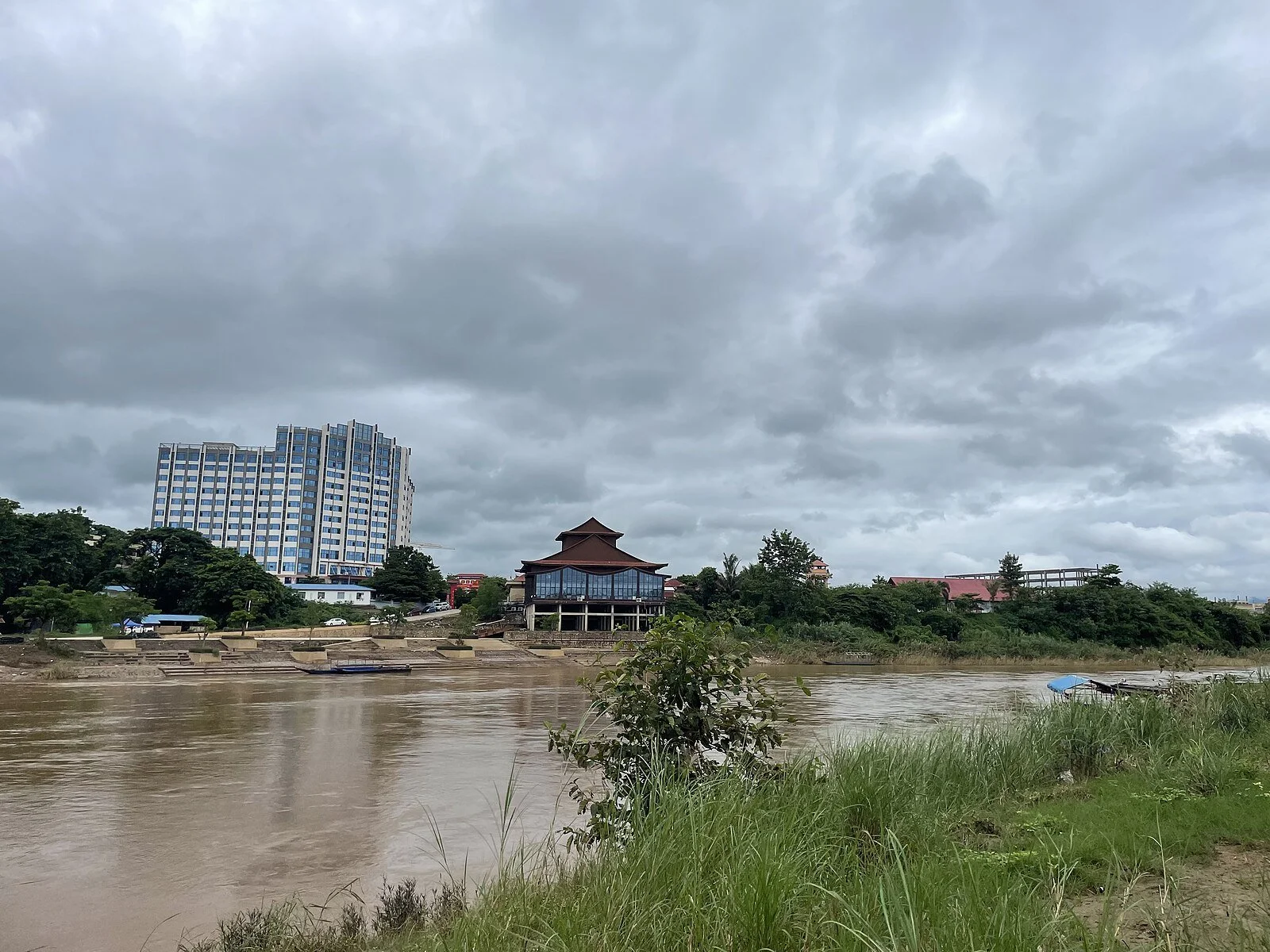Thailand Extradites Alleged Scam Compound Owner She Zhijiang to China
She Zhijiang’s syndicate undertook massive developments in Shwe Kokko, Myanmar (pictured), allegedly to house its scam operations (Wikimedia Commons).
Businessman and alleged cyberscam kingpin She Zhijiang was extradited to China from Thailand on November 12, three years after his arrest by Thai authorities, per the BBC. Chinese authorities accuse him of running illegal gambling rings, laundering money, and organizing a transnational crime syndicate.
Authorities carried out the extradition after a Thai criminal court rejected an appeal from She Zhijiang’s legal team. She Zhijiang has been on the run from Chinese authorities since he was convicted of heading an online lottery in China, where gambling is illegal, in 2014. Chinese authorities accuse him of running 239 online gambling sites, reports South China Morning Post.
In September, the U.S. Treasury Department slapped sanctions on She Zhijiang and his conglomerate, Yatai International Holdings Group, responsible for the construction of a cyberscam hub in Shwe Kokko, Myanmar.
Branded as a resort for Chinese tourists, Yatai New City features luxury villas and casinos but also hosts compounds where foreign recruits are lured in, trapped, and forced to conduct online scams under threat of physical abuse, according to the BBC. Locals there also report forced prostitution and drug trafficking, per the U.S. Treasury Department.
She Zhijiang’s extradition is part of a larger pattern of Chinese crackdown against scam networks and organized crime. Chinese state media reported that Chinese and Myanmar officials have arrested more than 57,000 Chinese nationals in relation to scam activity. They have not specified whether any of those arrested were coerced into conducting scams.
Recent punishments have also been issued against higher-profile members of the so-called Chinese “mafia” families who operate criminal syndicates throughout Southeast Asia. Earlier this year, Chinese authorities arrested 32 members of the Bai and Ming families, convicted of running similar scam operations in Laukkaing, Myanmar, near the border with China, writes the BBC. A court subsequently sentenced 16 of the 32 individuals to death.
Southeast Asia, particularly Myanmar, has recently become a center for large, organized cyberscam operations. In Myanmar, political violence sparked by the 2021 military coup has created a lawless environment; Chinese crime bosses can operate with impunity, aided actively by junta leader Min Aung Hlaing.
Neighboring Thailand recently cut power to scam centers across the border, reports the New York Times. After She Zhijiang’s extradition, the Chinese ambassador to Thailand expressed hope for increased cooperation on the prosecution of scammers, per Reuters. This comes as Chinese and Thai leaders meet for the first time in Beijing to celebrate the fiftieth anniversary of the two countries’ formal diplomatic ties, signaling further integration of the already strong economic and military partners, writes South China Morning Post.
She Zhijiang’s Yitai New City is part of a vast network of scam centers which has prompted global responses from both public and private entities. This year, flights organized by India, China, and South Korea repatriated hundreds of people freed from compounds in Myanmar, per the New York Times. Britain followed the United States in sanctioning known scam groups in Southeast Asia. SpaceX also disabled more than 2,500 Starlink satellites it said were enabling fraud operations in Myanmar, CNN reports. The expanded regional and global response promises to put increased pressure on scam operators in Southeast Asia.

